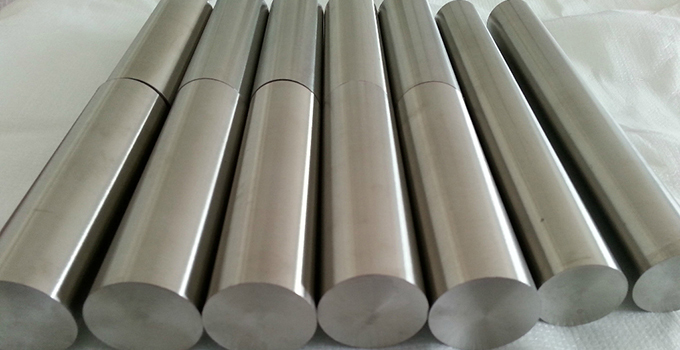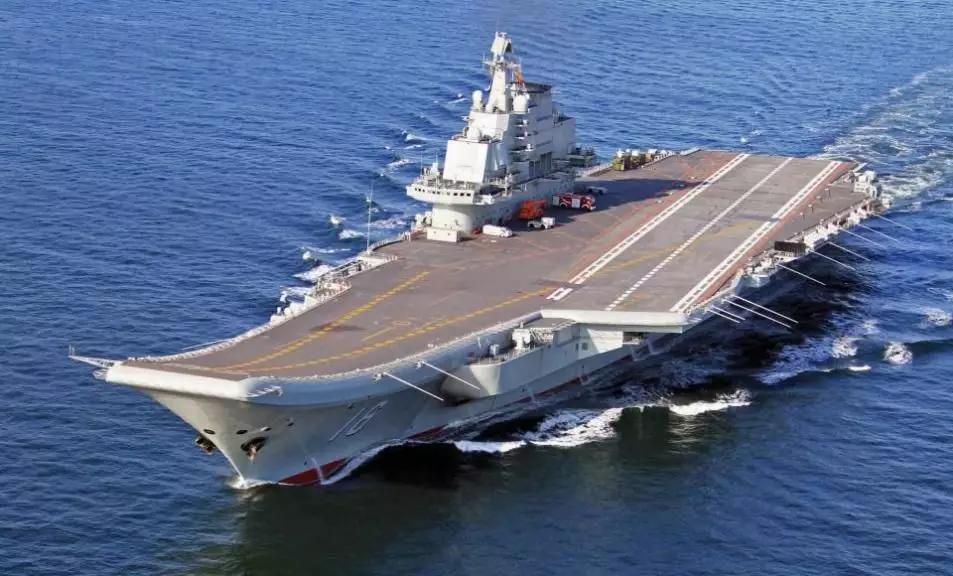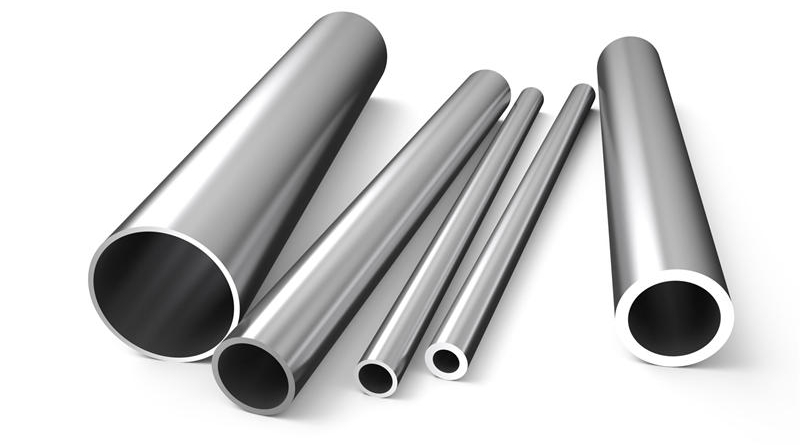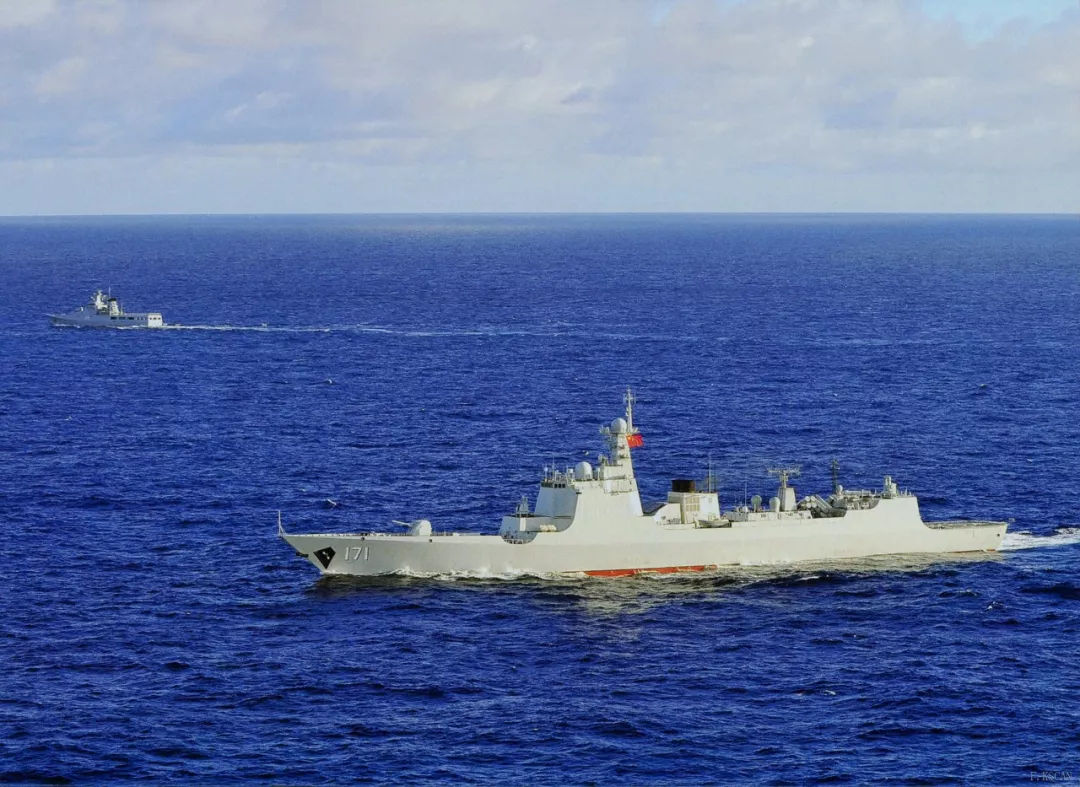Titanium is a material with excellent physical properties and stable chemical properties. Titanium and its alloys have high strength, low specific gravity, resistance to seawater corrosion and marine atmosphere corrosion, and can well meet the requirements of people's application in marine engineering. After years of efforts by personnel and marine engineering application researchers in the Titanium industry, Titanium has been widely used in offshore oil and gas development, harbor construction, coastal power stations, seawater desalination, ships and other fields.

Materials for marine engineering must have the characteristics of high strength, seawater hydrothermal corrosion resistance, sulfide corrosion resistance, microbial adhesion resistance and high toughness.
Titanium, known as "marine metal", is light in weight, high in strength, non-magnetic, corrosion-resistant, biocompatible, and especially resistant to seawater and marine atmosphere corrosion. It is an excellent light structural material and is especially suitable for being used as a spare material for light marine tooling. The popularization and application of Titanium and its alloys in marine engineering is of great significance to improve the operational capacity, safety and reliability of marine engineering equipment, and it is one of the important strategic materials for building maritime power.
Compared with copper, aluminum, stainless steel and other commonly used materials, Titanium is characterized by low density, high strength and strong corrosion resistance. At the same time, it has excellent seawater erosion resistance, no magnetism, no cold brittleness, a high sound transmission coefficient and excellent neutron irradiation attenuation performance. In plastic forming, casting, welding and other aspects, like other commonly used metal materials, Titanium metal materials can be processed and formed by conventional methods, thus making them widely applicable to all kinds of marine engineering.

The density of Titanium alloy is generally about 4.51g/cm3, which is only 60% of that of steel. However, its mechanical strength is equivalent to that of steel, and it has high strength, usually the tensile strength is (686-1176)MPa. The specific strength of Titanium alloy is much greater than that of other metal structural materials, and parts with high unit strength, good rigidity and lightweight can be manufactured. Aircraft engine structural parts, skeleton. Fasteners and so on are all made of Titanium alloy.
In the air below 550℃, a dense, adhesive, and inert oxide film will be formed on the surface of Titanium to protect the Titanium matrix from corrosion, and it will heal itself or regenerate quickly even due to mechanical wear. Moreover, when the medium temperature is below 315℃, the oxide film of Titanium always keeps this characteristic, so the corrosion resistance of Titanium alloy is better than that of most stainless steels in oxidizing media such as atmosphere, seawater, nitric acid and strong alkali.
High-temperature Titanium alloy can be used for a long time below 600℃ and for a short time below 800℃. When the flight speed Mach number of the aircraft is higher than 2.7, the disks, blades, guides and other parts of the engine are made of high-temperature Titanium alloy.
Metal Titanium is a bio-friendly metal. The biocompatibility of gas is very good, and it can be "compatible" when it comes into contact with the human body or implanted in the human body without causing harm to the human body. Titanium is non-toxic in the human body and can resist the corrosion of secretions, so it is adopted by the medical community and used in artificial joints, cardiac pacemakers, and other equipment.
Studies have shown that Titanium implants can trigger the human immune system to grow bones directly on the surface of Titanium, a process called osseointegration. It shows that Titanium is completely "biocompatible", which means that it is non-toxic, does not cause allergic and rejection reactions, and can even be fused with human tissues and bones.
The application of Titanium alloy in the shipbuilding industry began in the 1960s, about 10 years later than the application of Titanium in the aviation industry. The United States, Russia, Japan and China are the first countries to engage in the research on the application of Titanium in the field of ships.
Compared with fiber-reinforced plastics, aluminum alloy, steel, and other materials, the hull made of Titanium is light, can increase the effective loading weight, has a long service life, hardly needs maintenance, and is easy to remove marine life attached to the surface. For Titanium fishing boats built by Japanese iron and steel companies or shipbuilding companies, the hull, deck and structural parts are all made of Titanium.
Pumps, valves, and pipelines on ships have a service life of only 2-5 years because of the very bad working conditions. Titanium has excellent corrosion and destruction resistance, good yield strength, and low density, so it can be used to make thin-walled and small-diameter pipelines, valves, and other accessories. Using Titanium material to manufacture ship pipelines and fittings can not only reduce the weight but also significantly prolong the service life of the system and improve the service reliability. For example, compared with the B30 condenser tube, the density of the Titanium condenser tube decreases by nearly 1/2. The experience of using Titanium alloy pipes and equipment in warships shows that Titanium alloy materials have high reliability in terms of mechanical strength and seawater corrosion resistance. The corrosion life of Titanium alloy pipes, valves, pumps, and other accessories is not less than 1.2×105h, and the service life is not less than 40 years. The service life of various pumps, valves, and pipes made of Titanium alloy is much longer than that of copper or stainless steel products.
Using Titanium alloy to make the propeller and propeller shaft of the ship can improve propulsion speed and prolong service life. The United States has used Titanium alloy propellers on various ships. Titanium alloy is also an excellent material for marine water jet propulsion devices. A torpedo boat in Japan also uses a Ti-6Al-4V alloy water jet propulsion device. The power plant of the atomic-powered icebreaker made in Russia also uses a Titanium steam engine. Using Titanium alloy can prolong the service life of its engine by more than 10 times. In addition, a large number of Titanium alloy materials are also used in ship engine components such as engine disks and rotor blades. The use of Titanium alloy power propulsion devices can also overcome the defects of cutting the earth's magnetic field lines during navigation, which will generate large induced currents and is not conducive to sweeping magnetic mines.
The pipeline systems and valves of heat exchangers, condensers, coolers, and evaporators can be made of Titanium. The service life of equipment made of Titanium can reach more than 100,000 hours, and it will not release harmful substances, which is environmentally friendly, while copper-based alloys will release harmful copper ions to the environment due to corrosion.
In seawater, whether it is a light wave or radio wave, its attenuation is far greater than that of a sound wave. Therefore, sonar is widely used in the development and utilization of the ocean, when ships and torpedoes search for and detect underwater targets. However, in sonar equipment, acoustic materials with different properties are needed. Among them, the sonar fairings of warships and torpedoes and the shells of high-pressure acoustically transparent containers are made of underwater acoustic acoustically transparent structural materials.
Generally speaking, the purpose of installing a streamlined sonar dome outside the ship's sonar transducer is to reduce the hydrodynamic noise caused by the ship's movement, ensure the underwater acoustic equipment works effectively and normally, and thus improve the sonar's working distance. Sonar dome must have good sound transmission performance so that underwater acoustic signals have little loss and distortion when passing through. Russia used to use FRP, but later it mostly used Titanium alloy. Titanium alloy has good sound transmission performance. Many large-scale combat vessels, such as Russian Hyundai, have their sonar domes made of Titanium alloy, which are used in the sonar systems of Russian aircraft carriers Kursk, Titanium Plate Minsk, and Kiev.

For ships of the same size, the mass of Titanium hull is 30% of that of FRP and 10% lighter than that of aluminum alloy. Because the surface of Titanium ship does not need to be sprayed with antirust paint, the quality of the paint is also saved.
Because the ship is light, it is possible to miniaturize the ship-borne engine. In addition, there is no paint on the surface of the ship in direct contact with water, which also reduces the friction coefficient with water, thus improving the speed of the ship.
The lightweight and high speed of Titanium ships greatly reduce the fuel cost per unit mass and per unit sailing distance. This is not only a reduction in navigation expenses, but also a reduction in CO2 production, which is very effective in preventing global warming.
Titanium plate is as corrosion-resistant as pt in seawater. Therefore, there is no need to spray anticorrosive paint.
It is difficult to recycle the waste products of FRP ships, and a simple and practical method has not been found so far. Like aluminum ships, Titanium ships can be recycled, which is beneficial to environmental protection.
Even in bad weather, Titanium ships rarely shake vertically and horizontally and can sail stably at high speed.
When idling, the noise is low, and the vibration caused by the impact of waves during sailing is not great. This is the result of the investigation of Titanium speedboats.
It is inferred from the actual investigation results that the service life of Titanium ships is much longer than that of steel and aluminum captains, and the actual service life will be longer.
With the further aggravation of the world energy crisis, countries all over the world have invested a lot of manpower and material resources to exploit seabed oil resources and other mineral resources. In the global trend of increasing shortage of fresh water, all coastal countries will use seawater to make fresh water. Moreover, the naval equipment competition among military powers is becoming increasingly fierce. These are inseparable from the use of Titanium and its alloy materials. Therefore, Titanium and its alloys are more and more widely used in marine engineering.
In a word, metal Titanium and its alloys are light structural materials that are especially suitable for use as spare materials for light marine tooling. Its high-quality characteristics, such as lightweight, high strength, non-magnetism, corrosion resistance, biocompatibility, and corrosion resistance of seawater and marine atmosphere, make it one of the important strategic materials for building a maritime power, which is of great significance for improving the operational capacity, safety and reliability of marine engineering equipment. The metal Titanium and its alloys produced by our company have undergone strict quality control and testing to ensure the reliability of their performance and quality. If you need more information or applications about Titanium, please feel free to contact us. We will serve you wholeheartedly.
